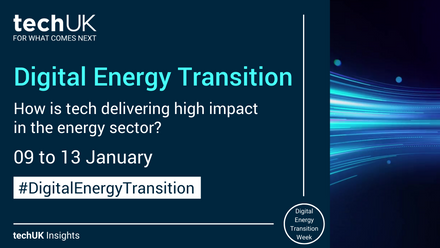How can cloud mitigate climate change?
With COP26 behind us, and investors, governments, and the general public increasingly concerned about how we can meet our climate goals, businesses will need to think carefully about their own net-zero strategy and how they can be more sustainable in 2022.
Moving operations to the Cloud could help organisations looking to reduce their impact on the environment, meet Environmental, Social, and Governance (ESG) targets, and become more attractive to climate conscious investors and customers.
As the UK’s Cloud market continues to grow in 2022, many businesses that adopted Cloud as a crisis-management choice during the pandemic will be developing a long-term strategy for their post-pandemic IT systems. In that context, getting the most from the Cloud will require more than a “lift and shift” approach.
Cloud could be the greener option for end users
Higher utilisation rates, more efficient cooling, and newer hardware optimised by the Cloud provider could all contribute to lower energy consumption. Sharing hardware resources via public Cloud can also mean more sustainable supply chains and no need for businesses to retain and periodically upgrade often unused capacity. These benefits will only get “greener” over time, as the ability to scale in the Cloud and take advantage of the latest technology without capital investment make business growth more sustainable.
An opportunity for cloud providers
A growing Cloud market means more of the IT industry’s overall carbon footprint will be directly accounted for by Cloud providers, or in other distributed locations at the Edge.
This could be an opportunity for the sector to drive forward the net-zero agenda and demonstrate the positive contribution Cloud can make to meeting our climate and sustainability goals.
To help with this, Cloud providers can ensure that growth is matched with investment in renewable energy, the most efficient cooling and data centre hardware, and take advantage of the distributed nature of the Cloud by prioritising access to renewable energy and harnessing data-driven real-time optimisation.
End users have an ongoing role to play in sustainable Cloud
Moving to the Cloud should be more than a “lift and shift” exercise. Getting the most out of the Cloud in terms of sustainability means re-engineering legacy applications and adopting an approach to software development that includes sustainability as a key goal. Designing applications to be “Cloud Native” – optimised to take full advantage of Cloud architecture – could lower power consumption.
Data management will also be an important factor in the long-term sustainability of the Cloud. Users should be proactive in identifying redundant or rarely used data that could be deleted or moved to cold storage. Businesses may need to retain previous versions of code or comprehensive log files but, as digital adoption grows, we are already seeing a corresponding growth in “junk data”.
A sustainable Cloud provider will offer tools to measure and report on carbon emissions associated with different workloads, and end users will be actively monitoring that data and using it to inform software development and their overall net-zero strategy.
Sustainable Cloud requires ongoing partnership between Cloud providers and users
The Cloud industry can make a powerful and positive contribution to reducing our impact on the environment and meeting the UK’s net-zero ambitions, while enabling innovation and growth.
This opportunity will only increase as digital transformation continues to sweep through the economy and businesses look to Cloud as a cost-effective platform for harnessing the power of emerging technologies like AI, IoT, AR/VR, and Quantum.
Unlocking the full potential of a sustainable Cloud will require a pro-active and collaborative engagement between providers and end-users, ensuring that businesses are empowered to build a sustainable cloud.
The contribution of a sustainable Cloud to achieving net-zero will be a key element of techUK’s Cloud Programme in 2022. We will be working with members to promote the good work already underway in the sector and build awareness and understanding of how Cloud can help make digital transformation a sustainable climate-friendly prospect in the year ahead.
Chris Hazell
Chris is the Programme Manager for Cloud, Tech and Innovation

Laura Foster
Laura is techUK’s Head of Programme for Technology and Innovation.

Sue Daley
Sue leads techUK's Technology and Innovation work.
Zoe Brockbank
Zoe is a Programme Assistant, supporting techUK's work across Policy, Technology and Innovation.







